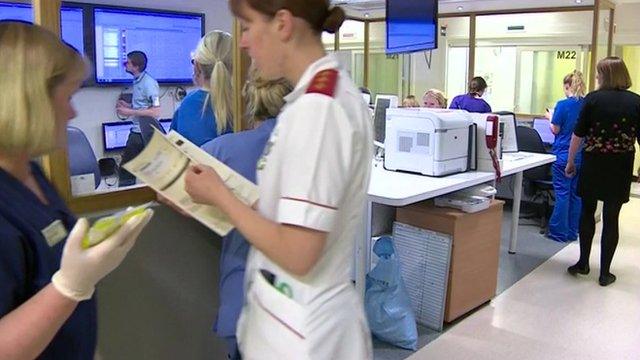Hospitals in England to get individual savings targets
- Published
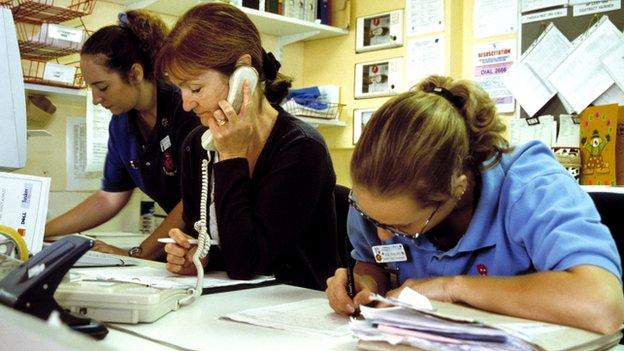
Hospitals in England are being given their own individual savings targets as part of a drive to save money.
The figures are being sent to 137 hospital trusts by Lord Carter, who has been appointed by the government to improve efficiency in the NHS.
He will spend the next six weeks meeting hospital bosses to discuss the targets, before they are made public.
In June, Lord Carter's report on the NHS identified a number of measures it said could save £5bn a year by 2019-20.
Lord Carter came to that figure after spending a year working with 22 hospitals.
He found a wide variation in spending across medicines, everyday items, such as dressings and syringes, and on facilities such as heating.
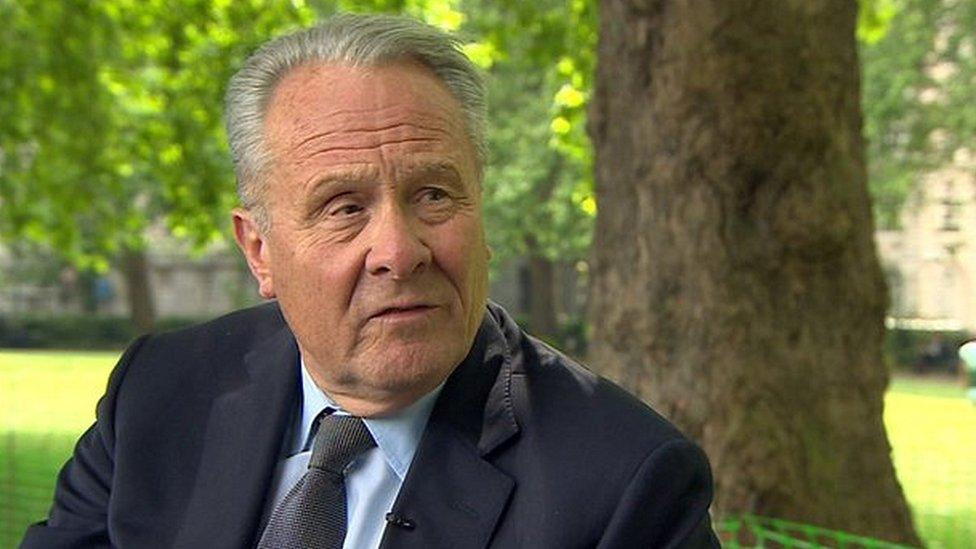
Lord Carter says the NHS in England could save £5bn a year with improved staff organisation and better buying practices
His review also said major savings could be made through better staff rotas and management of training and annual leave.
There were also wide differences in the cost of common operations, such as hip replacements, and infection rates.
He has now broken down the savings by speciality. The process has enabled Lord Carter to benchmark what each hospital should be doing in each department.
The biggest savings were identified in general medicine, followed by obstetrics and gynaecology.
The Labour peer also said hospitals should build their own care homes to look after elderly patients after they have been treated to make it easier to discharge patients.

Analysis
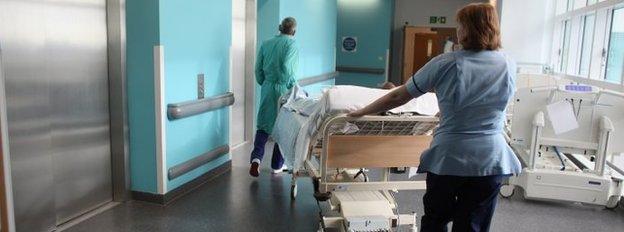
By Hugh Pym, BBC health editor
Lord Patrick Carter, a Labour peer as it happens, is advising Health Secretary Jeremy Hunt on how hospital budgets can be better spent.
In a nutshell, Lord Carter believes that just as there is variation in levels of care around the NHS, as identified by the Care Quality Commission, there are also variations in the use of money by hospitals - some are doing it well and providing good value for the taxpayer, some are not.
He is a firm believer in good leadership leading to high-quality patient care and the most efficient use of resources.
If hospitals all adopted the best practice for different surgical procedures and treatments, he argues, then outcomes for patients would be better and money would be saved.

Prof Tim Briggs, a leading orthopaedic surgeon, has led efforts to standardise his own surgical speciality and will now help hospitals identify the most effective products and techniques across other surgical fields.
He told BBC Radio 4's Today programme that improving quality of care and reducing post-operative complications could bring savings of about a billion pounds a year.
"If you look at the other side too - which is procurement - we've got to get our costs down", he added.
"Everybody says, 'We've got the best deal,' when they clearly haven't."
It comes at a time of mounting pressure on NHS finances. In the first three months of this financial year, a deficit of nearly £1bn has already built up - more than the overspend for the whole of last year.
Lord Carter said: "The route to better care is to empower NHS leaders, so giving them the data and support they need means they can improve how they care for patients and make savings which can be reinvested in front-line care.
"Patients will be the real winners."
Health Secretary Jeremy Hunt added: "We are giving the service £10bn extra this Parliament so it is vital to use that money to secure the best outcomes."
But Jennifer Dixon, head of the Health Foundation think tank, said: "The complexity of the task at hand cannot be underestimated. Staff are working flat out and need space and support to achieve change."

Where biggest savings can be made
General medicine £381m
Obstetrics and gynaecology £362m
Trauma and orthopaedics £286m
Pathology £256m
Cancer services £255m
Emergency medicine £254m
General surgery £235m
Community nursing £217m
High cost drugs £213m
Paediatrics £209m
Source: The Carter review

- Published21 October 2015
- Published11 June 2015
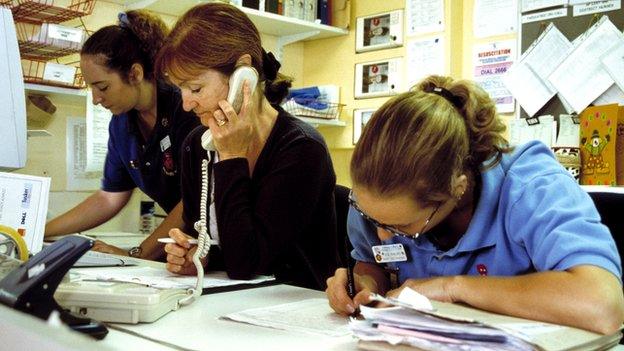
- Published31 May 2015
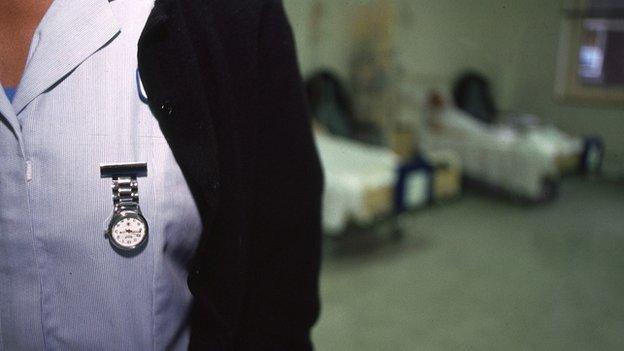
- Published22 May 2015
